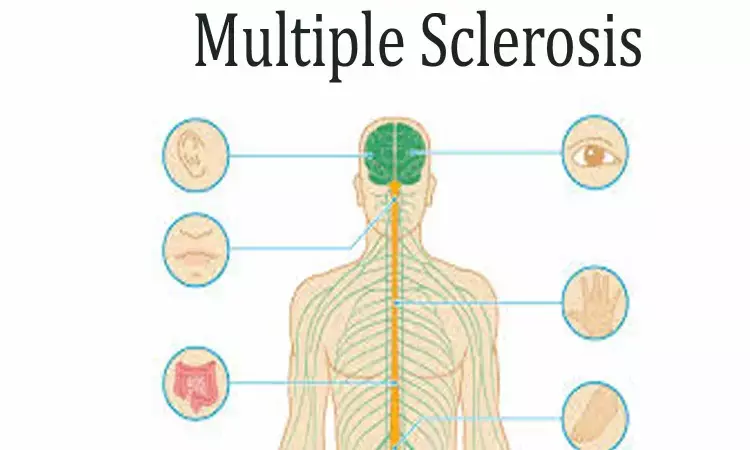- Home
- Medical news & Guidelines
- Anesthesiology
- Cardiology and CTVS
- Critical Care
- Dentistry
- Dermatology
- Diabetes and Endocrinology
- ENT
- Gastroenterology
- Medicine
- Nephrology
- Neurology
- Obstretics-Gynaecology
- Oncology
- Ophthalmology
- Orthopaedics
- Pediatrics-Neonatology
- Psychiatry
- Pulmonology
- Radiology
- Surgery
- Urology
- Laboratory Medicine
- Diet
- Nursing
- Paramedical
- Physiotherapy
- Health news
- Fact Check
- Bone Health Fact Check
- Brain Health Fact Check
- Cancer Related Fact Check
- Child Care Fact Check
- Dental and oral health fact check
- Diabetes and metabolic health fact check
- Diet and Nutrition Fact Check
- Eye and ENT Care Fact Check
- Fitness fact check
- Gut health fact check
- Heart health fact check
- Kidney health fact check
- Medical education fact check
- Men's health fact check
- Respiratory fact check
- Skin and hair care fact check
- Vaccine and Immunization fact check
- Women's health fact check
- AYUSH
- State News
- Andaman and Nicobar Islands
- Andhra Pradesh
- Arunachal Pradesh
- Assam
- Bihar
- Chandigarh
- Chattisgarh
- Dadra and Nagar Haveli
- Daman and Diu
- Delhi
- Goa
- Gujarat
- Haryana
- Himachal Pradesh
- Jammu & Kashmir
- Jharkhand
- Karnataka
- Kerala
- Ladakh
- Lakshadweep
- Madhya Pradesh
- Maharashtra
- Manipur
- Meghalaya
- Mizoram
- Nagaland
- Odisha
- Puducherry
- Punjab
- Rajasthan
- Sikkim
- Tamil Nadu
- Telangana
- Tripura
- Uttar Pradesh
- Uttrakhand
- West Bengal
- Medical Education
- Industry
High-dose biotin does not significantly improve multiple sclerosis: Lancet

USA: The use of MD1003, a high-dose of pharmaceutical-grade biotin, did not help in significant improvement of walking speed or disability in patients with progressive multiple sclerosis (MS), according to findings from phase III SPI2 trial. The findings, published in the journal Lancet Neurology, suggest that MD1003 cannot be recommended for progressive MS treatment.
There is an increasing need for therapeutic options directed at neurodegeneration that is responsible for progression in MS. MD1003 migh help in enhancing neuronal and oligodendrocyte energetics resulting in improved cell repair, function, or survival.
The previous MS-SPI -- randomised, double-blind, placebo-controlled study -- found that MD1003 improved disability outcomes over 12 months in progressive MS patients. The SPI2 study by Prof Bruce A C Cree, University of California San Francisco, San Francisco, CA, USA, and colleagues, was designed to assess the safety and efficacy of MD1003 in progressive forms of multiple sclerosis in a larger, more representative patient cohort.
SPI2, a randomised, double-blind, parallel-group, placebo-controlled trial, was performed at 90 academic and community multiple sclerosis clinics across 13 countries. It included 642 patients aged 18–65 years and having a diagnosis of primary or secondary progressive multiple sclerosis fulfilling the revised International Panel criteria and Lublin criteria, a Kurtzke pyramidal functional subscore of at least 2 (defined as minimal disability), an expanded disability status scale (EDSS) score of 3·5–6·5, a timed 25-foot walk (TW25) of less than 40 s, evidence of clinical disability progression, and no relapses in the 2 years before enrolment.
326 participants received MD1003 (oral biotin 100 mg three times daily) and 316 received placebo.The primary endpoint was a composite of the proportion of participants with confirmed improvement in EDSS or TW25 at month 12, confirmed at month 15, versus baseline. The double-blind, placebo-controlled phase of the study ended when the primary endpoint for the last-entered participant was assessed on Nov 15, 2019.
Key findings of the study include:
- The mean time in the placebo-controlled phase was 20·1 months.
- For the primary outcome, 12% of 326 patients in the MD1003 group compared with 9% of 316 in the placebo group improved at month 12, with confirmation at month 15 (odds ratio 1·35).
- Treatment-emergent adverse events occurred in 84% of 331 participants in the MD1003 group and in 85% of 311 in the placebo group.
- 26% of 331 participants in the MD1003 group and 26% of 311 participants in the placebo group had at least one serious treatment-emergent adverse event.
- One (<1%) person died in the MD1003 group and there were no deaths in the placebo group.
- Despite use of mitigation strategies, MD1003 led to inaccurate laboratory results for tests using biotinylated antibodies.
"In addition to the potential of MD1003 for deleterious health consequences from interference of laboratory tests, MD1003 cannot be recommended for treatment of progressive multiple sclerosis," concluded the authors.
"Safety and efficacy of MD1003 (high-dose biotin) in patients with progressive multiple sclerosis (SPI2): a randomised, double-blind, placebo-controlled, phase 3 trial," is published in the journal Lancet Neurology.
DOI: https://www.thelancet.com/journals/laneur/article/PIIS1474-4422(20)30347-1/fulltext
Dr Kamal Kant Kohli-MBBS, DTCD- a chest specialist with more than 30 years of practice and a flair for writing clinical articles, Dr Kamal Kant Kohli joined Medical Dialogues as a Chief Editor of Medical News. Besides writing articles, as an editor, he proofreads and verifies all the medical content published on Medical Dialogues including those coming from journals, studies,medical conferences,guidelines etc. Email: drkohli@medicaldialogues.in. Contact no. 011-43720751


